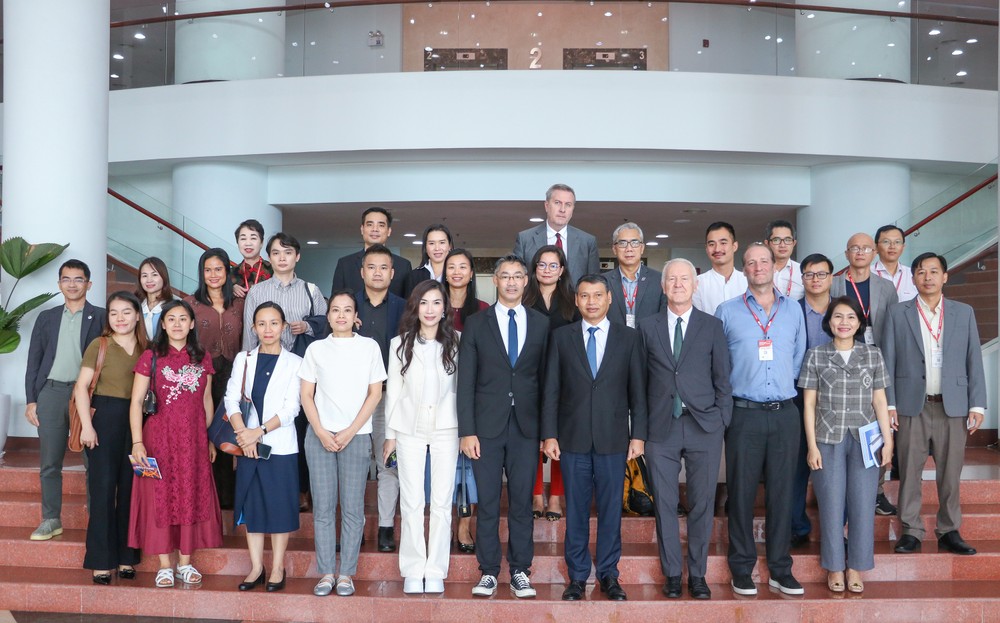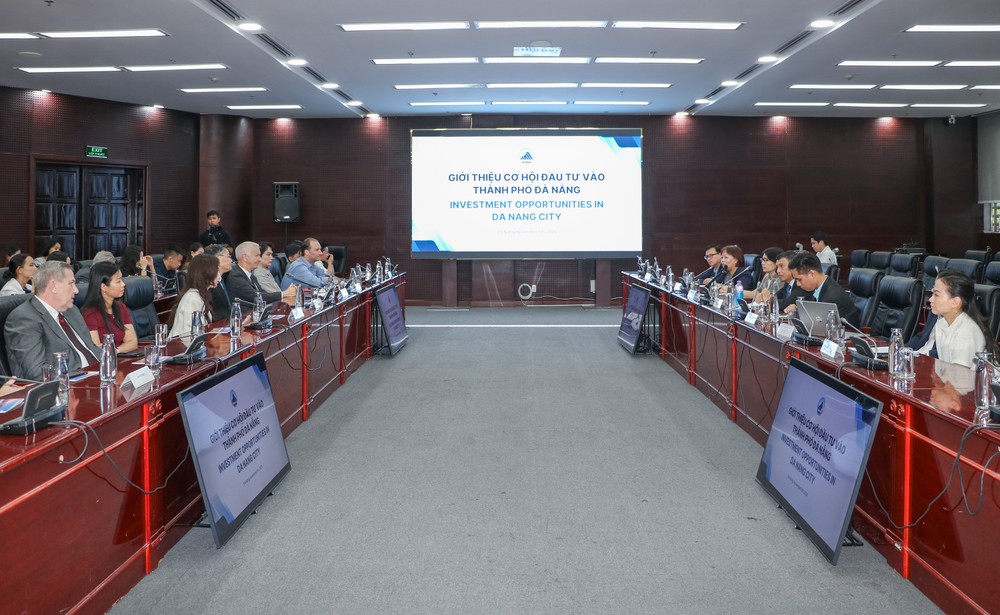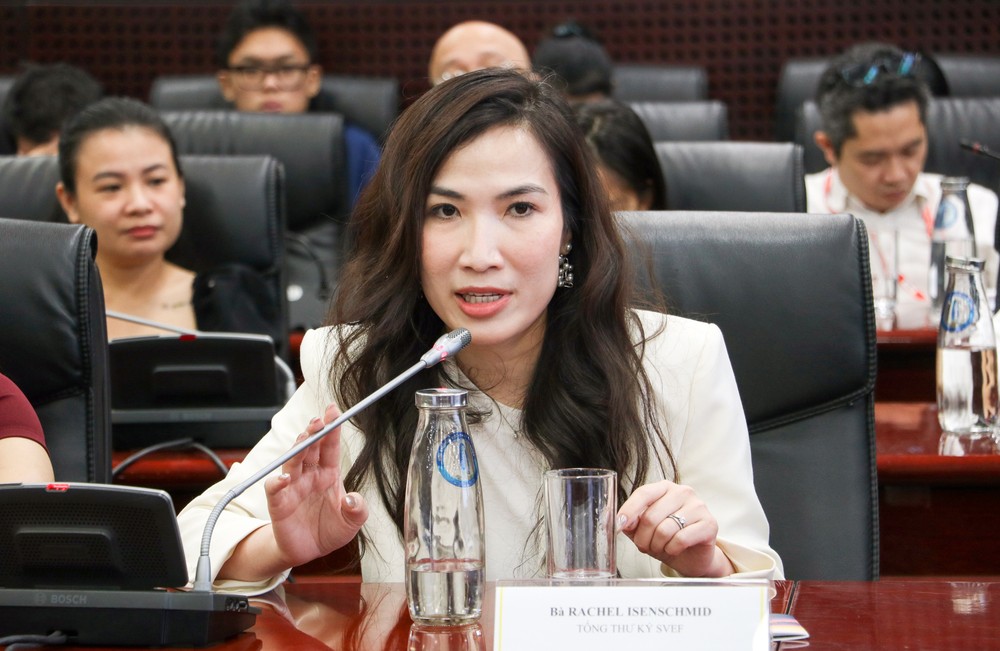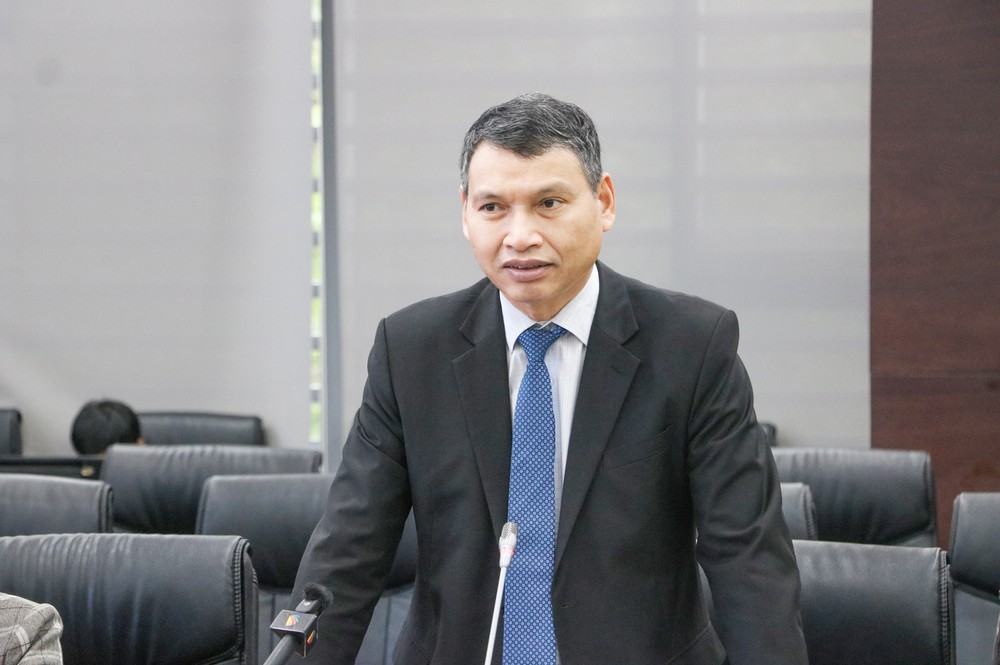
Mr. Ho Ky Minh, Permanent Vice Chairman of the Da Nang People’s Committee, held a working session with the Switzerland–Vietnam Economic Forum (SVEF) to present investment opportunities in Da Nang on the morning of November 5.
Introducing the city’s Free Trade Zone (FTZ) model to the delegation, Ms. Huynh Lien Phuong, Deputy Chief of the Da Nang People’s Committee Office, said the city is developing the FTZ model to attract foreign investment and promote high-tech manufacturing.

Da Nang has planned seven locations for its Free Trade Zone, strategically positioned near seaports, existing industrial parks, areas adjacent to the High-Tech Park, and several commercial zones in the city’s southern area. Given limited land availability, Da Nang’s FTZ will not be concentrated in a single area like other economic zones but will adopt a flexible, multi-site model. The zone will comprise three functional subzones: Manufacturing and Logistics, Trade and Services, and Digital Transformation and Innovation. The city expects this model to become a new destination for foreign investors in technology, logistics, and international trade.
According to Ms. Huynh Lien Phuong, the FTZ initiative represents Da Nang’s innovative approach to expanding development space and attracting international capital in the context of insufficient land for a large-scale economic zone.
The SVEF delegation acknowledged Da Nang’s positive investment environment, preferential policies, and high-quality human resources. However, they noted that what matters most is whether Da Nang can become a “second home” for Swiss investors — a decision that requires long-term confidence and trust.

Ms. Rachel Isenschmid, Secretary-General of SVEF, emphasized that although the city’s development orientation is promising, Swiss business presence in Vietnam — particularly in Da Nang — remains limited. Swiss companies value security, safety, and transparent, equitable investment procedures, she said.
The delegation assessed that with well-developed infrastructure, a business-friendly environment, and investment policies aligned with international trends, Da Nang holds strong potential to become an attractive destination, especially for young entrepreneurs who wish to combine business with long-term living. The Swiss side also expressed hope that the insurance sector, a cornerstone of financial and industrial activity, would receive greater attention as Da Nang’s Financial Center comes into operation.
Regarding special mechanisms and policies for digital currency and financial technology projects, Vice Chairman Ho Ky Minh said the city is working with the Ministry of Finance to finalize amendments to National Assembly Resolution 136, which sets out special preferential policies for Da Nang. The revised resolution is expected to be submitted at the National Assembly session in November and will include incentives for experts, scientists, and highly skilled professionals working in the city.

On human resource development, Da Nang is focusing on five key sectors: tourism; logistics linked to seaport and aviation; information technology and high technology; precision engineering and manufacturing; and financial services. The city is enhancing high-quality training programs at leading universities, such as the University of Science and Technology, the University of Economics, and the Vietnam–Korea University of Information and Communication Technology, aligning curricula with international standards. It is also promoting international cooperation and investment in semiconductor laboratories, chip design, AI, and digital transformation to support research and education.
In the agriculture and rural sector, following administrative consolidation, Da Nang now covers over 11,700 square kilometers, about 70 percent of which is agricultural land. The city encourages investment in high-tech agriculture and medicinal crops, notably Ngoc Linh ginseng. Currently, 18 enterprises have been allocated more than 300 hectares at the foot of Mount Ngoc Linh for ginseng cultivation. According to Mr. Ho Ky Minh, developing agricultural enterprises requires linking raw material areas with processing and forming closed value chains from production and procurement to distribution, with Chu Lai Open Economic Zone serving as the nucleus of this ecosystem.
Vice Chairman Ho Ky Minh concluded that the meeting helped both sides gain a clearer understanding of Da Nang’s potential sectors, investment needs, and specific interests of Swiss enterprises. In the coming time, the city will maintain flexible communication channels — through online meetings, in-person sessions, or group discussions — to shorten timelines and facilitate more detailed exchanges on specific projects, procedures, priority sectors, and Da Nang’s support policies.
























